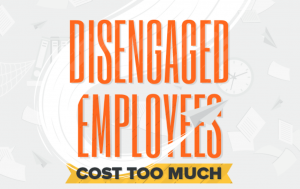While there’s plenty of advice out there for employees on how to prepare for their mid-year or annual performance review, it’s just as important for employers to prepare for the process as well. Even in small businesses and startups, employees expect to have some kind of formal review at the end of the year, and they respect employers and managers who put an effort into reviewing their performance and show an interest in their career development.
Employees crave feedback. Any decent employee wants to know how they’re tracking on a fairly regular basis, not only to be praised for any successes but also to discuss any particular areas of improvement.
With that in mind, here are some tips for employers and managers on how to prepare for and conduct a successful performance review.
Key Takeaways:
-
Make sure you create a non-threatening environment so your employees are comfortable during the discussion.
-
Ask for feedback from them to see how they might improve their performance on their own.
-
Set reasonable goals that they agree with that way they are not being set up for failure.

9 Tips for Conducting End of Year Performance Reviews
-
Send Out a Pre-Appraisal Questionnaire in Advance
Reviews need to be booked into the calendar well in advance. About two weeks prior to the scheduled review time, the employee should be sent a “pre-appraisal questionnaire” containing a series of several questions including:
-
What have been your key accomplishments over the last six months and what are the areas that you are disappointed in or concern you most?
-
In relation to communication with your manager what has worked well so far and what do you want to change moving forward?
-
In relation to time management, what have you done that has made a difference to your effectiveness in your role?
-
What are your top four priorities for the next 3 – 6 months?
-
In relation to your personal strengths and weaknesses, what skills have you developed or what competencies have you improved or added to your role in the last six months?
-
What are you offering to the business now that you were not offering six months ago?
-
In general is there anything about the business that you would like to see improved?
Pre-appraisal documents allow employees to come better prepared to their review, by making them think about relevant issues beforehand. They also help to make them feel part of the overall review process.
As a manager you really need to get this questionnaire back with enough time to then prepare for the review. You can’t just get it back on the morning of the appraisal. You then need sufficient time to prepare your thoughts and comments.
-
-
Set Realistic Timelines
These are critical. As a manager or business owner, you should send out pre-appraisal documents two or three weeks ahead and your employee should have their responses back to you at least a few days before the scheduled review. This gives you ample time to prepare your own comments and areas for discussion.
-
Relate it to the Position Description
Each employee should have a comprehensive position description that details the duties of their position and the standards they are expected to achieve. This should have been issued when they first came on board and you should both have a copy of it, to be referred to, if necessary, during the review.
What sort of impression are you creating if you can’t even provide a new employee with a description of the job you are hoping they will do for you? The all too common “We’re hoping to create the job around you” doesn’t really cut it either.
-
Create a Non-Threatening Environment
Make sure you allow enough time for the appraisal to be conducted properly and choose a private location, where you will not be interrupted by phone calls or other work-related distractions even if this means away from the office. Try to put the employee at ease by having an informal chat beforehand and keep the review as non-intimidating as possible. Having a positive atmosphere is more likely to produce positive communication.
In smaller organizations employee engagement and staff satisfaction (key measures of staff retention) are often left to fall by the wayside. Unfortunately annual performance appraisals often become a quick impromptu catch up over a sandwich at a nearby café, a 15 minute chat in a taxi on the way back from a client meeting, or worse still a two-line email along the lines of “It’s great to have you on board. You’re doing a terrific job. Keep up the good work”.
I remember once my boss did my annual review at his home. We spent nearly four hours (in a setting well away from the office) reviewing the previous six months and setting my objectives for the next six months. I stayed with that organization (and that boss) for nearly 8 years.
-
Keep to a Formal Process
A performance review should be in part reflective (looking back over the previous six months), but should also be a chance for targets, goals or objectives to be set for the next half of the year. But if you expect these goals to be reached or objectives met, you also need to appreciate that your staff member is expecting you to follow through on anything you might commit to – for example from a training or professional developmental perspective. So don’t just put the review documentation into their file and lock it away for another six months.
-
A performance appraisal is a two-way street. No employee wants to turn up and be suddenly told about something they did wrong five months earlier, or just to have a “so how are you going?” informal chat. Similarly no manager wants to turn up to a review only to be told by an employee out of the blue that, “I’m really not enjoying this job any more”. Preparation (from both parties) is key.
-
Start with the positives – things they have achieved and are doing well in the performance of their role. Offer praise where it is due and, if this is not their first review, discuss the areas where they have improved since the last review.
-
Then move on to any negatives – areas where their performance may be lacking or where goals that were set in the last review have not been achieved. Remember to always be as specific as possible by pointing to actual instances where they have not been performing, rather than generalizing and risking confusion, which can lead to defensiveness.
-
-
Ask for Feedback
Let them suggest how they might improve their own performance and ask them what you can do to help them achieve this. This might include further training, or perhaps altering some aspect of their job.
If you treat the performance review process seriously, then your staff will also take it seriously. They will feel more looked after and appreciated, and you will have a more constant finger on the pulse of what people are feeling like in your business.
-
Set Goals and Make Sure They Agree With Them
Get a commitment from them that they will try their best to improve. If their performance has been good, discuss ways they can improve even more in the six months ahead. Write these goals down and get the employee to sign the completed appraisal form.
-
End on a Positive Note
Whether it is a good or a poor review, let them know that you are on their side and will do all you can to help them meet the objectives that have been mutually agreed upon.
-
Follow Up
This is the most important step. If you have agreed to help an under-performer, make sure that you do so. Talk to their supervisor or take it upon yourself to initiate whatever steps you discussed with them to help them perform better.
This is not only for the employee’s benefit, but also to protect you. If you are forced to terminate the employee further down the track and you have not given them the opportunity to improve their performance, you may be open to a claim of unfair dismissal.
Why Are End of the year Performance Reviews Important?
A performance review helps you to achieve the following:
- Identify and monitor over and under-achieving employees;
- Structure future training programmers and possible future roles;
- Provide both praise and constructive criticism in a neutral environment;
- Clearly communicate your expectations to employees; and
- Motivate employees to greater efforts on the company’s behalf.
When well prepared for and properly conducted, a performance review indicates to your employees your professionalism, your appreciation of their contribution and your desire to see them improve and grow within the company.
It also allows you to see which of your employees are making the most valuable contribution and which, if any, are letting the side down – useful information to have in today’s tough business climate, where every dollar must count.
End of Year Performance Review FAQ
-
What is something I should be doing during a performance review?
Something you should be doing during a performance review is keeping all feedback constructive. You want to focus on their behaviors and discuss the good as well as the bad. Employees are not able to learn if they never receive constructive feedback. Think of this conversation as what an employee should start, stop, or continue doing.
-
What kind of feedback should I give first?
Positive feedback should be given first at performance reviews. It’s important to start positive because it can help set the tone for the rest of the meeting. It also helps teach your employees which kind of behaviors are valued.
-
What is an end of year review?
An end of year review is when a manager goes over an employees performance from the past year. The purpose of the meeting is go over any achievements, goals, and any other ideas that they may have for the upcoming year.
- Performance Review
- Guide to Performance Reviews
- Guide to Performance Appraisals
- End of Year Performance Reviews
- Defining Your KPIs
- Continuous Performance Management
- How To Have Tough Conversations With Your Employees
- How To Improve Performance Reviews
- How To Avoid Being Called A Bully At Work
- Essential Factors Of Successful Employee Evaluations
- Employee Feedback Examples
- What Are Employee Evaluations?
- Employee Write-Up For Poor Performance
- How To Give An Employee Warning (With Template And Examples)
- How To Make A Job Satisfaction Survey
- How To Respond To Negative Feedback
- How To Give Constructive Feeedback To Employees
- Individual Development Plan (With Template + Example)
- Performance Appraisal Form (With Template + Sample)





